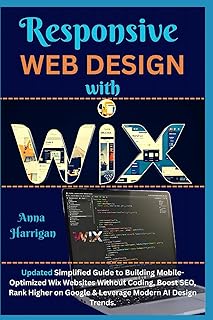In a digital landscape dominated by WordPress, many may find themselves pondering alternative solutions for their websites. While WordPress is a powerhouse, recent internal issues have prompted a search for viable substitutes. Fortunately, the realm of content management systems (CMS) offers a rich array of options catering to diverse website needs.
The quest for the perfect WordPress alternative has led to the exploration of 24 leading platforms spanning various website categories. From user-friendly website builders to open-source solutions, the market is teeming with alternatives for those seeking a change. This review delves into platforms tailored for bloggers, developers, tech-savvy users, and community managers, each offering unique features, benefits, and drawbacks.
While WordPress enjoys a significant market share, the availability of quality alternatives underscores the importance of considering options that align with specific website requirements. Platforms like Wix cater to beginners and small businesses, providing an easy-to-use interface for creating professional websites without extensive technical skills. However, as businesses grow, they may find the need to explore more advanced platforms like Squarespace, which offers sleek, modern templates optimized for mobile devices.
For those seeking more flexibility and customization, platforms like Jekyll and Hugo provide lightweight, developer-friendly solutions with robust blogging features. Joomla and Drupal target users requiring advanced content management capabilities, catering to large corporations, government agencies, and universities. These platforms offer extensive customization options but come with a steeper learning curve, making them more suitable for users with web development experience.
Ecommerce merchants can turn to platforms like BigCommerce, Shopify, Magento, and PrestaShop for building and managing online stores. Each platform offers unique features such as multi-channel selling, inventory management, and SEO tools, catering to businesses of all sizes. Additionally, community management platforms like vBulletin provide robust forum software for businesses, organizations, and communities seeking to foster online discussions.
Blogging enthusiasts can explore platforms like Medium, Ghost, Tumblr, and Blogger, each tailored to different user demographics. While Medium offers a streamlined publishing platform with a built-in audience, Ghost focuses on simplicity and performance for bloggers and small publications. Tumblr and Blogger cater to casual bloggers and hobbyists, providing easy-to-use interfaces for creating and sharing content.
Ultimately, the decision to choose a WordPress alternative hinges on factors such as website purpose, budget, technical skills, customization needs, scalability, and support. By evaluating these factors and researching various platforms, users can find the right alternative that meets their specific requirements and goals. With a plethora of options available, there is likely a WordPress alternative that can cater to diverse website needs, providing users with the opportunity to create their ideal online presence beyond the confines of WordPress.
📰 Related Articles
- Exploring Semrush Alternatives: Diverse Tools for SEO Success
- Exploring Ohio’s Top Flea Markets for Diverse Shopping Experiences
- Top Xbox Game Pass Games for 2025: Diverse Selection
- Top WiFi Printers for Efficient Home Office Printing Needs
- Top Prebuilt Gaming PCs of 2025 for Diverse Preferences





